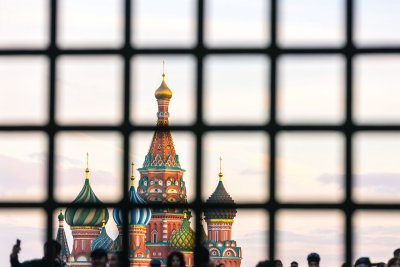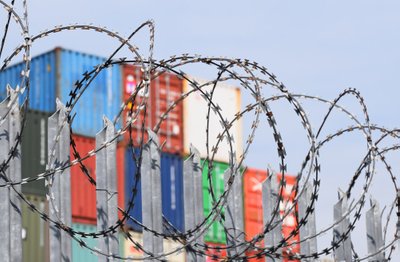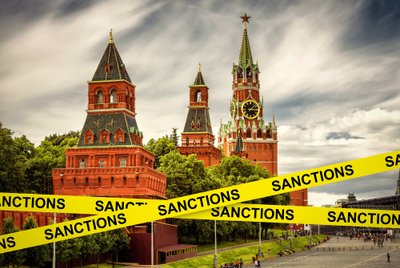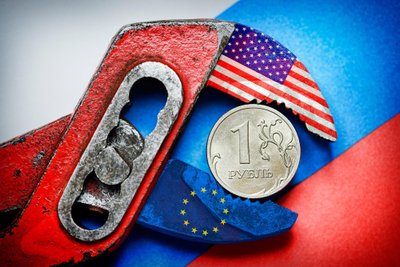Even prior to the war, I had argued that the sanctions imposed on Russian businesspeople change situation for the worse, since entrepreneurs have always been the most pro-Western part of the Russian society; soon after the invasion, I insisted that setting up a tribunal for the Kremlin’s war crimes and bringing charges against senior Russian officials and military commanders were more important tasks than seizing Russian private assets; later, I showed in detail why the introduction of the oil price cap would not cause the Russian budget’s revenues to collapse. Today, as it already became rather clear that sanctions have not significantly reduced Russia’s military capabilities; as Ukraine had received a mere $5.4 million (or one hundredth of a percent) out of the $58 billion of frozen private assets that belong to wealthy Russians; as the republic of Latvia has become the largest exporter of wine to Russia due to the sanctions regime; and as dozens of companies from countries whose finance ministers are celebrating the success of sanctions, maintain and expand their Russian business, I do not believe any economic arguments may convince the Western authorities of the erroneous way in which the sanctions policy is championed.
Even less are the Western politicians convinced by the fact that Russian businesses are returning to Russia forced by the sanctions, and the oligarchs who failed to establish themselves in the West have started to seek Vladimir Putin’s patronage and rallied around him as never before. No one is paying attention to the fact that while the United States and European powers target foreign banks working with Russia by new sanctions, the Kremlin promotes strategies that, within a couple of years, could secure a leading position for Russia in the use of blockchain and cryptocurrencies in international settlements, thus allowing "alternative" financial technologies to challenge the US dollar transactions. And since all this seems insignificant, I recently have made one last attempt, trying to show that the sanctions regime is undermining the fundamental element that had secured the West’s dominance over "the rest" for several centuries – i.e. the system of principles known as theRule of Law that most of the non-Western nations have continuously failed to implement.

As of mid-2024, the European Union has imposed sanctions on more than 500 Russian businessmen. Thesemeasures, which not only restrict their freedom of movement (visas and residence permits may be revoked, after all, by any host nation) but affect their property rights (legally acquired in accordance with the European laws and norms before the sanctions were introduced), seem to be punishment for a crime that was never mentioned in any criminal code existing across Europe (being an "influential businessman" in a country that wages a war of aggression isn’t a criminal offence per see – one should be reminded of the fates of Nazi Germany’s leading entrepreneurs, none of whom were convicted for their business activity). Moreover, sanctions look nowadays as a kind of punishment imposed without a proper investigation (which must precede any seizure of property even executed as a caution for securing possible financial claims). In the European Union, sanction decisions are too often made on the basis of "expert opinions" (e.g., the decision to sanction Alisher Usmanov on February 28, 2022 was made taking into account a tweet by Anders Åslund, who claimed the businessman "is one of Vladimir Putin’s favorite oligarchs", and an article published by Forbes magazine, which said that "he has repeatedly fronted for [Russian President] Putin" and "solved his business problems").
Mikhail Fridman and PyotrAven were added to the sanctions lists in part because of publications by Ilya Zaslavsky, who had bashed them being previously fired from one of the companies controlled by both businessmen. Later, Mr. Åslund deleted his tweet, a court in Germany ordered Forbes to refute the theses set out in the ill-fated article – but the sanctions against Mr. Usmanov were recently upheld. Both Mr. Fridman and Mr. Aven managed to win a case in the European Court of Justice nullifying the sanctions decisions brought against them back in 2022, but in 2023 while the case has been deliberated, the European Council has changed the wording, and the sanctions remain in force despite the Court’s ruling. In these cases, two fundamental principles of the Rule of Law have been violated: on the one hand, the need to prove the commission of a crime, which lies with the prosecutors (there is still no detailed description of Mr. Usmanov’s "crimes"), and, on the other hand, the impossibility of punishing twice for the same act (between February 2022 and March 2023, when the European Council released two different versions of sanctions directives against Mr. Fridman and Mr. Aven, no one of them have been travelling to Russia so that they could have committed something else that would not have been taken into account when the first directive was announced).

To add, one may argue that many sanctions violate another fundamental legal principle that requires the same punishment for similar acts. The justification for a decision against Mr. Usmanov (which wasn’t overturnedby the European Court of Justice on February 7, 2024), stated that under and because of his control over the Russian daily newspaper Kommersant this media "faced limited editorial freedom" and "took a clear pro-Kremlin position". Such an evaluation, however, was made by anonymous "experts", while The Economist stated Kommersant as of late 2022 was "one of few remaining media in Russia that are not propaganda organs". But not these assessments attracted my attention, but rather the fact that Grigory Berezkin, owner of another Russian newspaper, RBK-Daily who bought it in 2017 after the newspaper expelled its leading independent journalists(many of whom turned later into the stars of the opposition émigré media), was removed from the sanctions list by a European Council decision of September 14, 2023 without any clear justification of the move (some speculations arose at the time it was lobbied by the Prime Minister Viktor Orbán of Hungary). Once again: different punishments for the same acts or a refusal to punish one person while punishing another is a blatant violation of the law-based order, effectively indicating a clear disregard for the legal considerations in favor of politically motivated ones. It’s important to repeat this at the time when the European Court of Justice is deliberating dozens of complaints by Russian businessmen against the sanctions (and as some of them, such as Alexander Shulgin, Dmitry Pumpyansky, Vladimir Rashevsky, and several others already got the rulings overturning either the imposition or the extension of sanctions against them).
Some additional concerns are fueled by the practice of imposing sanctions on the relatives of major Russian entrepreneurs – most often because they either benefit from their businesses or are current or former nominal owners of part of their assets. E.g., at various times, several children of Russian businessmen were subject to sanctions – former F1 Haas team driver Nikita Mazepin, the son of a major fertilizer producer Dmitry Mazepin, or Alexander Pumpyansky, the son of metallurgical mogul Dmitry Pumpyansky. The sanctions were also imposed (and remain in force to this day) on Alexandra Melnichenko, a dual Serbian and Croatian national, who claims she has never been a Russian subject and has never lived in Russia, but is married to Andrey Melnichenko, the founder of giant EuroChem and SUEK companies (he holds also a UAE citizenship since 2023) and was named the beneficiary of the family trust instead of her husband (the trust itself is also subject to sanctions, which deprives Alexandra any opportunity to use its funds), and Gulbahor Ismailova, Mr. Usmanov’s sister (this case seems to be the most outrageous, since Ismailova, having previously been the beneficiary of two trusts set up by Mr. Usmanov for real estate planning purposes, never – like her brother – possessed access to their funds, since trusts are traditionally managed by independent trustees. Moreover, she recently signed deeds of exclusion that prevent her from receiving any future benefits from these trusts, and so exhausting all the available ways and means for reinforcing the EU directives). The cases of Mr. Melnichenko Jr. and Ms. Ismailova indicate the grounds for sanctions are sometimes solely based on family relationships between the sanctioned persons (I should note that in some cases where sanctions were applied to oligarchs’ children, the European Court of Justice has issued rulings lifting them – as it happened to Mr. Mazepin Jr. or Mr. Pumpyansky Jr.)

Another important issue (which is not more surprising) is the formal disregard for another legal principle – non-retroactivity. Most of the Russian businesspeople were included into the sanctions lists after the start of the war (or, more precisely, between late February and early June, 2022) with the wording that one or another "on February 24, 2022, attended a meeting of oligarchs at the Kremlin with President Vladimir Putin.., and the fact that he was invited shows that he is a member of the inner circle of oligarchs close to President Putin". The issue here is not even that all Presidium members of the Russian Union of Industrialists and Entrepreneurs were invited, but that, as of the day of the event, communications with President Putin were not considered by the European Union a defamatory action (dozens of European CEOs had met with the Russian president, collectively and individually, and none of them – not even Patrick Pouyanné, a frequent guest at Kremlin events and the CEO of Total Energies, which continues its Russian business in the Arctic – became subjected to sanctions). This indicates the sanctions are not aimed at changing Russian entrepreneurs’ behavior (in this was the case, it would be better to announce those who condemn Russia’s war in Ukraine, renounce Russian citizenship or get rid of their assets in Russia will be cleared from sanctions), but with the aim of settling scores (and in some cases even to secure competitive advantages for either European and U.S. companies in the global market).
Summing up the results of two and a half years of sanctions against big Russian business, I would repeat they have caused an unprecedented alienation of the most pro-Western group of Russian society from the West. The tax revenues of the Russian budget have grown in recent years in part not despite the sanctions but because ofthem since wealthy people are now keeping their money in Russian banks and many large companies had returned into in Russian jurisdiction (for not upsetting the oligarchs with high taxes and bureaucratic barriers,the Kremlin even established semi-offshore zones for those returning) – and hopes for a "revolt of [business] angels" against the Kremlin dictator remained just hopes (I pointed out their irrationality a year before the war has started). Unfortunately, the West isn’t ready to admit the failure of the chosen strategy: the recently released Russian dissidents, trying to change a bit the European approach, called for "abandoning sanctions against ordinary Russians", a priori assuming the big business doesn’t belong to this group. I have no illusions about a radical revision of the sanctions policy towards Russia (and I believe many nationwide and sectoral restrictions should stay in place if not be tighten up), but I want to argue that sanctions, which are becoming an increasingly universal means of pressuring the pariah states, have extremely dubious legal grounds (one may mention that while hundreds of scholarly articles are published every year on how the sanctions should be applied and what the compliance measures should look like, solid academic texts on the sources of legitimacy of this policy are still absent).

Introduced not so much by the parliaments but rather by the executive powers (and often not even by those of them that are responsible for combating organized international crime), they are mostly arbitrary, are applied retroactively, affect even the relatives and dependents of targeted individuals, and sometimes nullify previous legitimate decisions (e.g., in several cases the sanctioned Russians were deprived of European citizenship, legally acquired according to officially authorized procedures years before the sanctions were introduced). The rulings presented by the European judiciary increasingly raise doubts about its independence from the executive powers, and some specific steps (for example, the legal community’s refusal in several states to represent the interests of sanctioned individuals) – undermines the sacred right for legal protection, which shouldn’t be disputed in a society governed by the Rule of Law. In other words, if the issue of restoring ties with Russia might not be seen as important to Western politicians (although relations between countries have had to be restored after more serious conflicts), then the modern the established Western legal order cannot be considered insignificant – since all democratic societies are built on the primacy of law over political expediency, and this foundation has been attacked by modern sanctions.
Vladislav Inozemtsev, Ph.D. in Economics, serves as the Director of Moscow-based Center for Post-Industrial Studies and is a co-founder and Senior Fellow with Nicosia-based Center for Analysis and Strategies in Europe.
